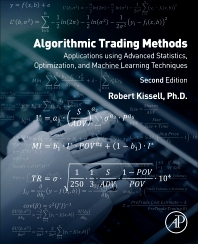Books in Financial institutions and services
Books in Financial institutions and services

Contemporary Financial Intermediation
- 5th Edition
- March 1, 2026
- Stuart I. Greenbaum + 2 more
- English

Commercial Banking
Distinct Value, Roles, and Methods- 1st Edition
- November 28, 2025
- Allen N. Berger + 2 more
- English

Handbook of Blockchain, Digital Finance, and Inclusion, Volume 3
Web3, AI, Privacy and Greentech- 1st Edition
- April 25, 2025
- David Lee Kuo Chuen + 1 more
- English

Handbook of Digital Currency
Bitcoin, Innovation, Financial Instruments, and Big Data- 2nd Edition
- July 2, 2024
- David Lee Kuo Chuen
- English

The Economic and Financial Impacts of the COVID-19 Crisis Around the World
Expect the Unexpected- 1st Edition
- September 5, 2023
- Allen N. Berger + 2 more
- English

Handbook of the Economics of Corporate Finance
Private Equity and Entrepreneurial Finance- 1st Edition
- June 9, 2023
- English

International Money and Finance
- 10th Edition
- August 2, 2022
- Michael Melvin + 1 more
- English

Financial Trading and Investing
- 3rd Edition
- July 9, 2022
- John L. Teall
- English

Algorithmic Trading Methods
Applications Using Advanced Statistics, Optimization, and Machine Learning Techniques- 2nd Edition
- September 4, 2020
- Robert Kissell
- English

TARP and other Bank Bailouts and Bail-Ins around the World
Connecting Wall Street, Main Street, and the Financial System- 1st Edition
- June 5, 2020
- Allen N. Berger + 1 more
- English